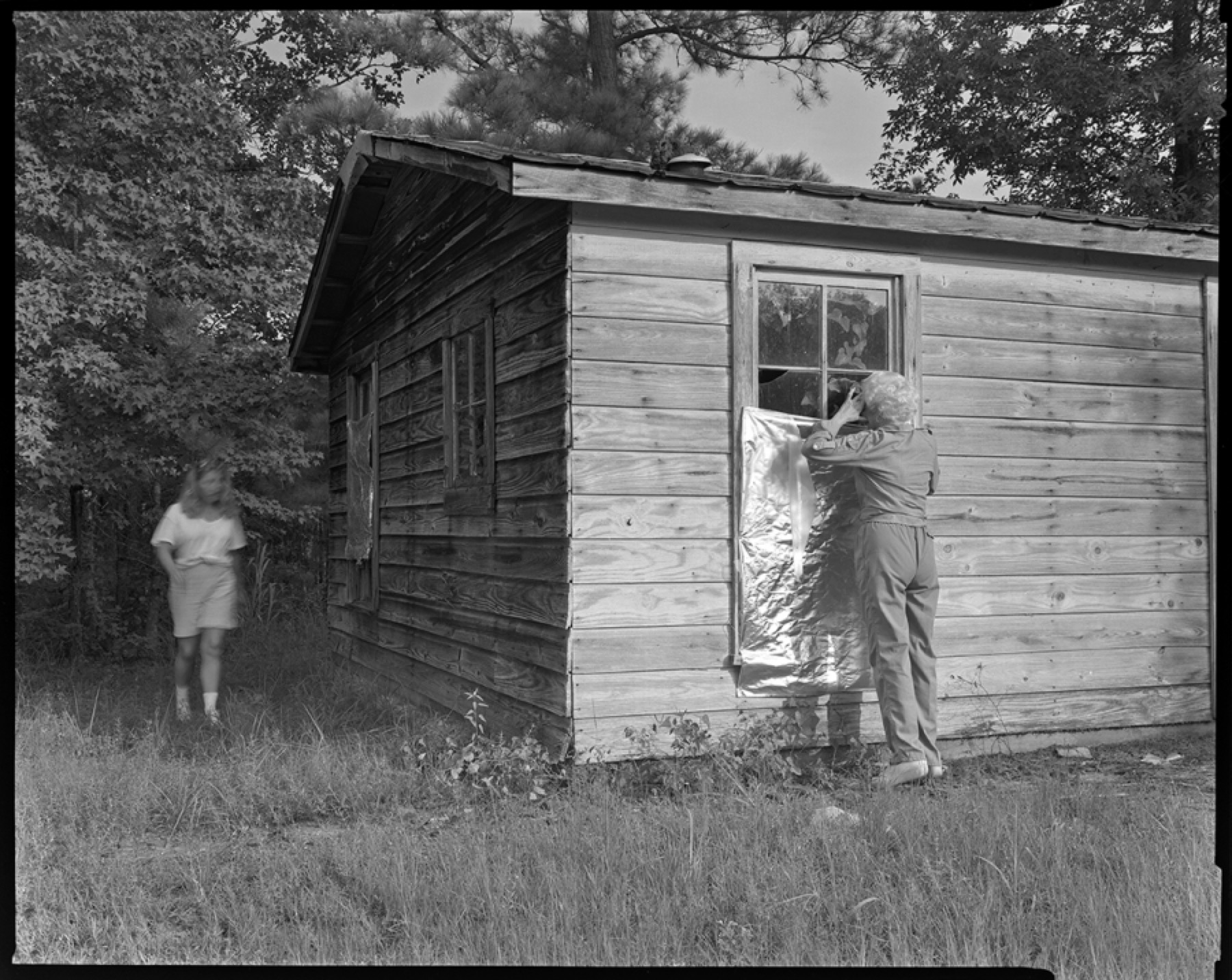
What Do You Think's in the Shed?
By C. D. Wright
The carpets, the paneling, the overstuffed recliner. Chainsaw carving
on the TV, kerosene lantern for thunderstorms, girl
A coaster, an ashtray. Tailgates, their trucks, their people, everybody
in short shorts, corrugated buildings, old A/C units,
window fans, toolboxes, decoys, ball caps. Taxidermic squirrel. Rusty wire
fences, chain-link fences. TV cabinet in the dump.
People on their cedar decks, people on their knotted-pine decks. Broken
hunks of concrete. Makeshift sheds. Xmas tree
decorated with dollar bills, Xmas tree decorated with Coke cans, and
a little lizard in a kiddie pool. Antlers. What else.
No one ever reads. Small, necessary, man-made body of water.
Stocked with bass. Large-mouthed. Near Homer.
Local news: the Iliad. What else.
Not a damn thing to be done about it. Tow truck float of teens: skinny
kids, black kids, white kids,
big kids mugging for the camera. Long-tail cars trawling like gators.
Pay phones, cigarette machines, gas pumps,
in kitchen sink. Killer II seated next to a deacon. For a sense of change
furniture gets moved around the room. Churchy men.
Walnut tree in the background. Some can still sew. A tongue sticking out.
In profile: head of a pretty woman rhymed with
in lessening light. Corrugated fields.
There was a house fire. Terrible. Was there not. There was a burning
house. Everything lost. The photographer
of aliases. Starts playing for Blue Note. Interposition and nullification;
integration when the nullifiers aren’t in town.
with quarters in his sockets. Balloons, the smell of balloons. Boy with a
guitar, boy with a dumbbell. Hand puppet,
plastic cups, beer bottle cozies and dips, sound check in a diminutive gym.
Big hair and funky fur jackets. There was vegetation
johnson grass. Strong scent of dusty tomatoes off the vine. A furry
moon. What time is it. Does anyone care. Playing
Homecoming mum fat as a cabbage. Someone inspects another’s
splinter. Cousins. Here, have some sugar.
Velvet. Wicker. Faux suede. Polyester.
Nearly enough alcohol for every man, woman, and child. Teetotalers too.
Every Friday and Saturday night. We hear
and reams of tablecloths and a line of folding tables. Folding chairs.
PET-milk ballerinas.
All the sins of the world. Went right up. Barely enough love to go around.
So long as the sun kept blazing and a massive
moon rose in its hallowed path, they couldn’t, they just couldn’t, they
couldn’t not enjoy themselves.
Enjoy this poem? Subscribe to the Oxford American.


